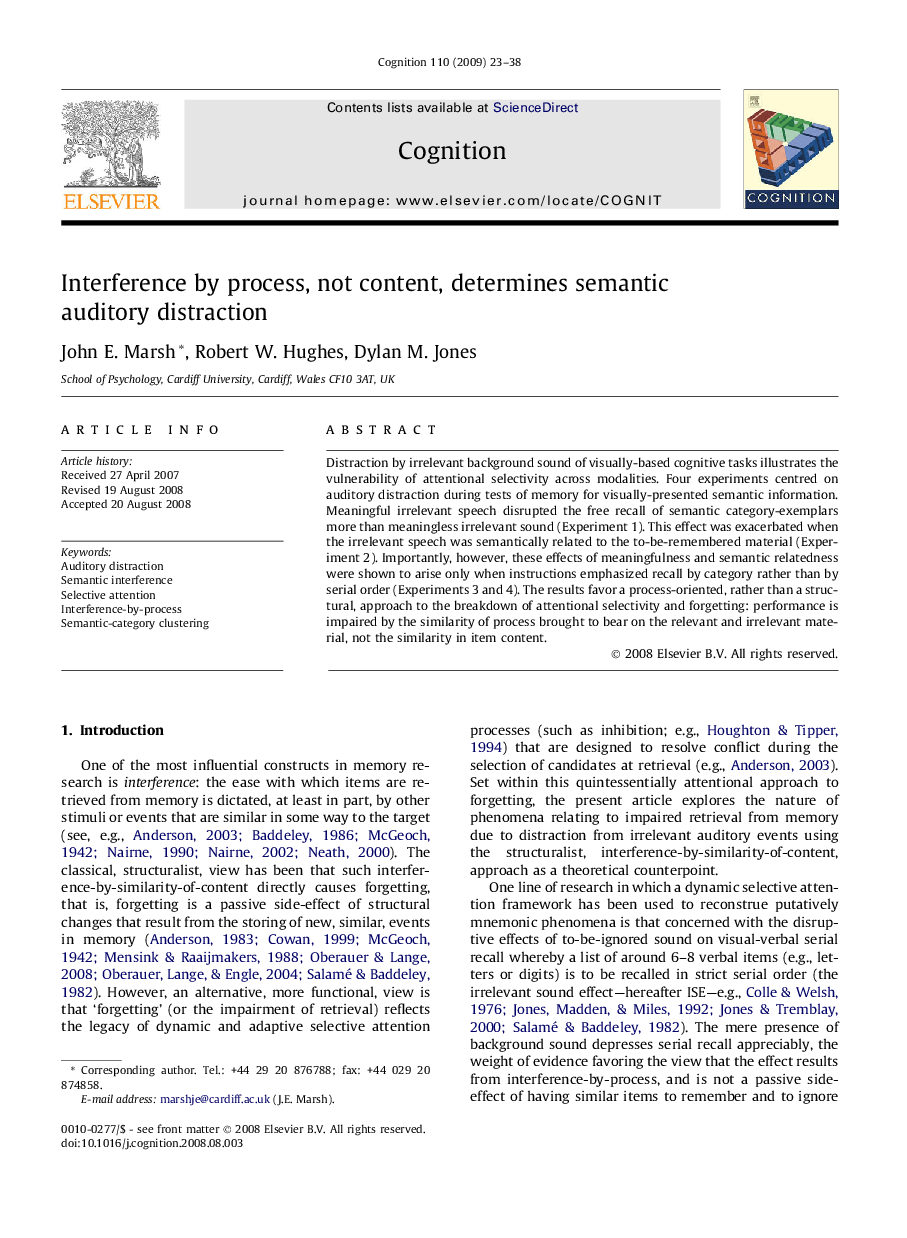| Article ID | Journal | Published Year | Pages | File Type |
|---|---|---|---|---|
| 926724 | Cognition | 2009 | 16 Pages |
Distraction by irrelevant background sound of visually-based cognitive tasks illustrates the vulnerability of attentional selectivity across modalities. Four experiments centred on auditory distraction during tests of memory for visually-presented semantic information. Meaningful irrelevant speech disrupted the free recall of semantic category-exemplars more than meaningless irrelevant sound (Experiment 1). This effect was exacerbated when the irrelevant speech was semantically related to the to-be-remembered material (Experiment 2). Importantly, however, these effects of meaningfulness and semantic relatedness were shown to arise only when instructions emphasized recall by category rather than by serial order (Experiments 3 and 4). The results favor a process-oriented, rather than a structural, approach to the breakdown of attentional selectivity and forgetting: performance is impaired by the similarity of process brought to bear on the relevant and irrelevant material, not the similarity in item content.
